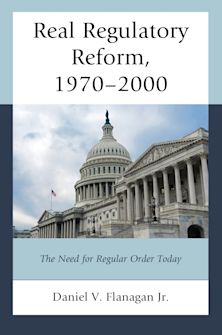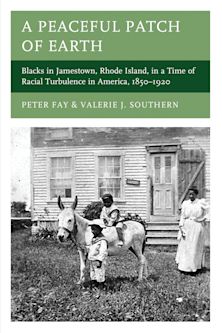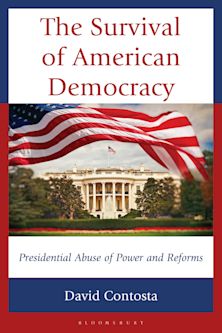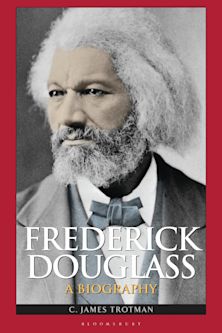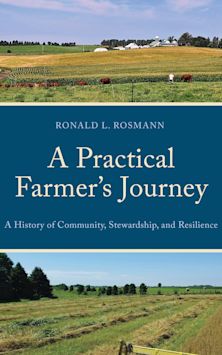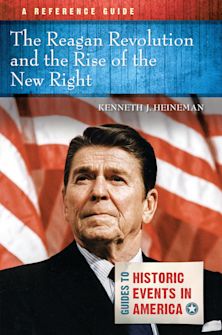- Home
- ACADEMIC
- History
- United States History
- Tariffs, Blockades, and Inflation
Tariffs, Blockades, and Inflation
The Economics of the Civil War
- Textbook
Tariffs, Blockades, and Inflation
The Economics of the Civil War
- Textbook
This product is usually dispatched within 3 days
- Delivery and returns info
-
Free CA delivery on orders $40 or over
Exam copy added to basket
Choose your preferred format. Please note ebook exam copies are fulfilled by VitalSource™.
You must sign in to add this item to your wishlist. Please sign in or create an account
Description
What role did economics play in leading the United States into the Civil War in the 1860s, and how did the war affect the economies of the North and the South? Tariffs, Blockades, and Inflation uses contemporary economic analyses such as supply and demand, modern market theory, and the economics of politics to interpret events of the Civil War. Simplifying the sometimes complex intricacies of the subject matter, Thornton and Ekelund have penned a nontechnical primer that is jargon-free and accessible. Tariffs, Blockades, and Inflation also takes a comprehensive approach to its topic. It offers a cohesive and a persuasive explanation of the how, what, and why behind the many factors at work on both sides of the contest. While most books only delve into a particular aspect of the war, this title effectively bridges the gap by offering an all-encompassing, yet relatively brief, introduction to the essential economics of the Civil War. This book starts out with a look at the reasons for the beginning of the Civil War, including explaining why the war began when it did. It then examines the economic realities in both the North and South. Also covered are the different financial strategies implemented by both the Union and the Confederacy to fund the war and the reasons behind what ultimately led to Southern defeat. Finally, the economic effect of Reconstruction is discussed, including the impact it had on the former slave population. Thornton and Ekelund have contributed an overdue examination of the Civil War that will impart to students a modern way to better comprehend the conflict. Tariffs, Blockades, and Inflation offers fresh, penetrating insights into this pivotal event in American history.
Table of Contents
Chapter 2 The Union Blockade and Southern Strategy
Chapter 3 Inflation, North and South
Chapter 4 Consequences of the War
Product details
| Published | Jan 01 2004 |
|---|---|
| Format | Paperback |
| Edition | 1st |
| Extent | 116 |
| ISBN | 9780842029612 |
| Imprint | Rowman & Littlefield Publishers |
| Dimensions | 220 x 166 mm |
| Series | The American Crisis Series: Books on the Civil War Era |
| Publisher | Bloomsbury Publishing |
About the contributors
Reviews
-
A readable, enjoyable treatise that introduces the works of many economists operating under the Austrian approach.
H-Net: Humanities and Social Science Reviews Online
-
The authors have an important story to tell. Tariffs, Blockades, and Inflation: The Economics of the Civil War is well done and presents important economic concepts, analyses of the blockades, the efforts of both sides to finance the war, and the consequences of the war. This new text will be useful in courses on the Civil War and American economic history.
Glenn Linden, Southern Methodist University
-
An extremely penetrating work that broadens our understanding of the great sectional conflict we call the Civil War-a war that not only changed forever the cultural fabric of the United States but inexorably altered the government established by the Farmers.
Chronicles: A Magazine of American Culture
-
Mark Thornton and Robert Ekelund, Jr. manage, within the covers of a slim volume, to supply fresh insights into the economic and political forces that led to war, contributed to the Confederacy's defeat, and shifted governmental power permanently toward the center. . . . Consistently spirited and thought-provoking, Tariffs, Blockades, and Inflation is a distinctive addition to the literature on the Civil War and to economic history more generally. . . . [Tariffs, Blockades, and Inflation] breaks new ground in applying neoclassical economic theory and public choice reasoning to the analysis of a pivotal and endlessly fascinating period in U.S. history. . . . Tariffs, Blockades, and Inflation is must reading for public choice economists, economic historians, and students who want-or can be assigned to want-a concise, user-friendly introduction to economic principles and their application.
William F. Shughart II, J. Fish Smith Professor in Public Choice, Utah State University, Public Choice
-
In concise and clear prose Professors Mark Thornton and Robert Ekelund use basic economics to explain the causes, outcome, and consequences of the Civil War.
John Majewski, University of California, Santa Barbara, The Freeman: Ideas On Liberty
-
Want to know why the South lost the Civil War? The answer is in this delightful, scholarly book.
Robert Tollison, Clemson University












